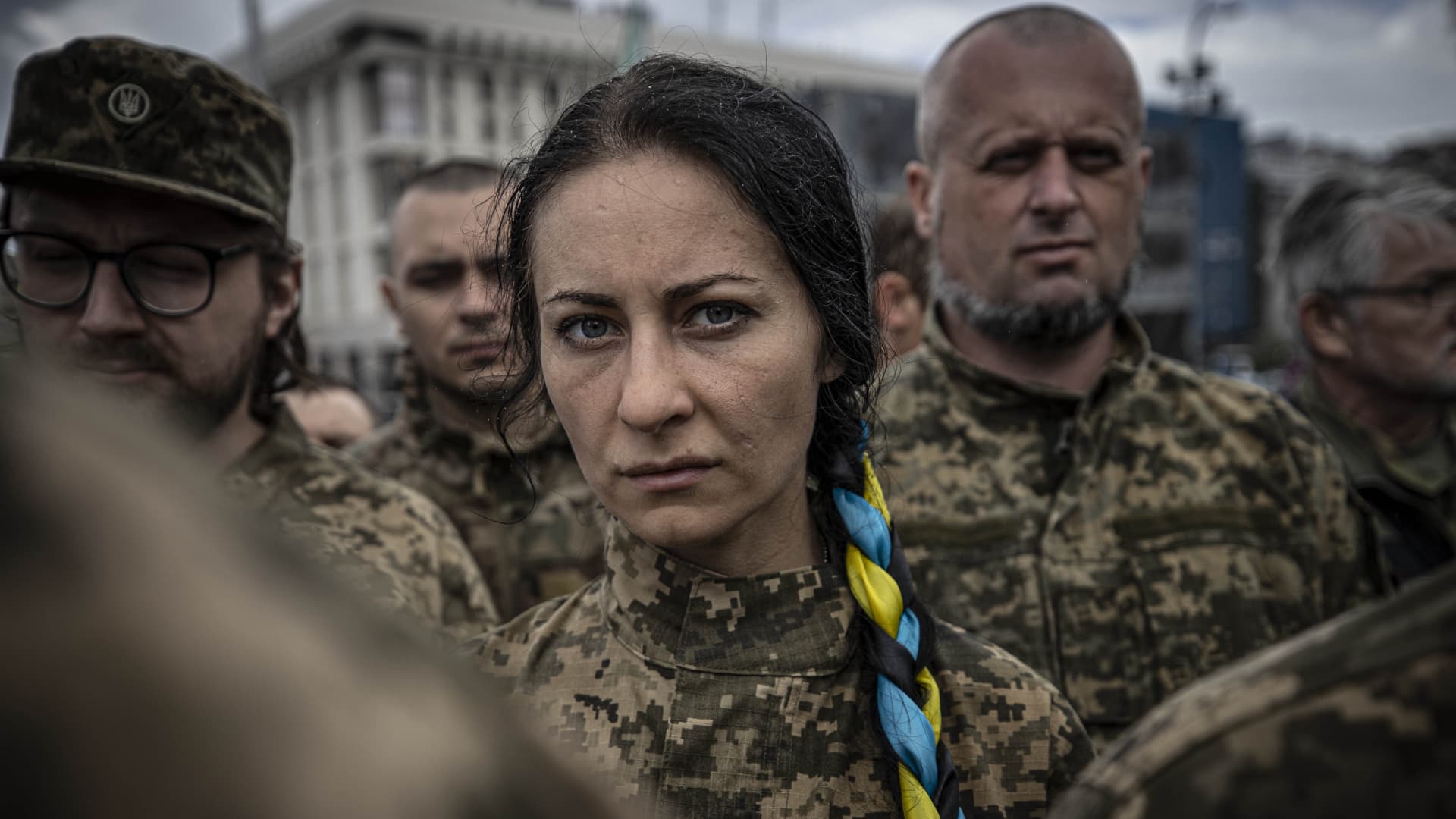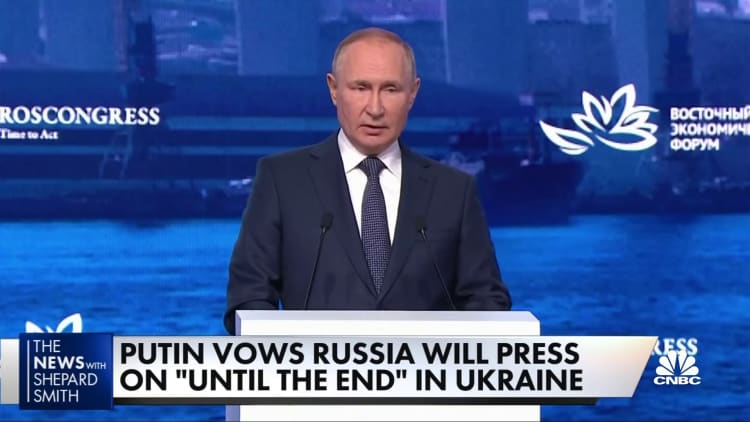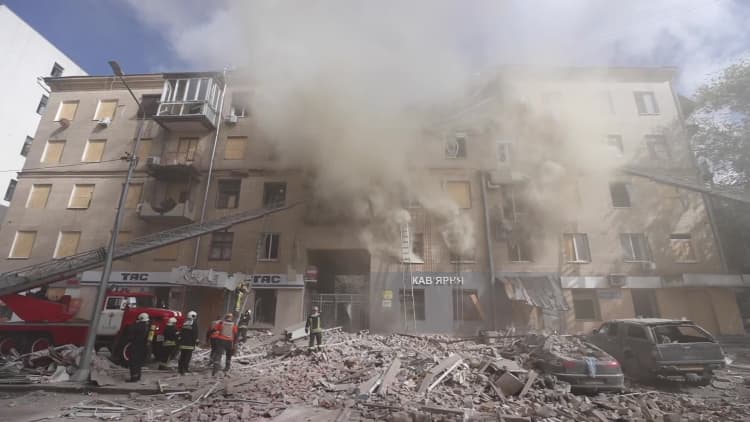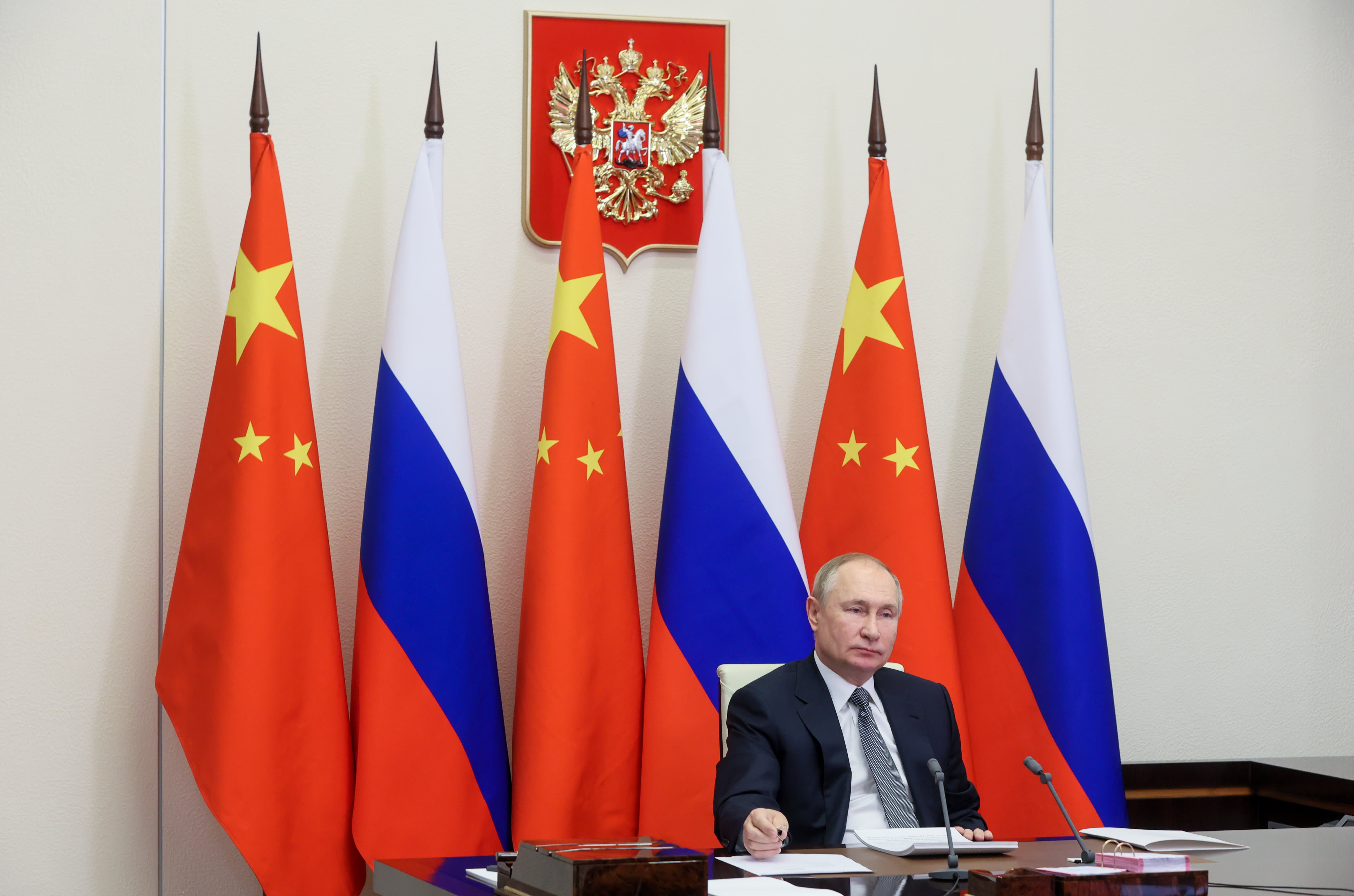Ukraine launches surprise counterattacks against Russian troops while they're distracted in the south
Ukraine appears to have surprised Russia with a series of counterattacks in the northeast of the country.

Ukrainian soldiers gathered in Kyiv for the funeral of Oleh Kutsyn, Karpatska Sich Battalion commander.
Metin Aktas | Anadolu Agency | Getty Images
Ukraine appears to have surprised Russia this week with a series of counterattacks in the northeast of the country with military strategists saying Kyiv is likely to have taken advantage of a recent redeployment of Russian troops to defend against a counteroffensive in the south.
President Volodymyr Zelenskyy confirmed that the counterattack took place Wednesday, saying in his nightly address that "we have good news from Kharkiv region" as he announced that several settlements had been retaken without giving further details.
"Now is not the time to name the towns where the Ukrainian flag is returning," he said, presumably as Ukraine aims to maintain a strategic military advantage. He added that "each success of our military in one direction or another changes the general situation along the entire front in favor of Ukraine."
"The more difficult it is for the occupiers, the more losses they have, the better the positions of our defenders in Donbas will be, the more reliable the defense of Zaporizhzhia and Mykolaiv, the cities of Dnipropetrovsk region will be, the sooner we will be able to liberate [the] Azov coastline and the entire south," Zelenskyy noted.
Both Ukrainian and Russian sources have been commenting on the counterattacks over the last few days. Oleksiy Arestovych, an advisor to Zelenskyy, tweeted Tuesday that "counter-offensive actions by the Armed Forces of Ukraine are taking place not only in the south of Ukraine, but also in the east and southeast."
Meanwhile, pro-Russian military blogger Danil Bezsonov had been posting in recent days about locals in Kharkiv reporting an accumulation of Ukrainian manpower and equipment in the region and on Tuesday announced an attack on the town of Balakliya, between Kharkiv and Izyum. On Thursday, he noted on Telegram, however, that "Balakleya is not taken, the enemy is trying to enter from different sides."
Throughout the summer Ukraine had said it would launch a counteroffensive to retake Kherson and occupied land in the south but had made no mention of the occupied northeast and eastern Donbas.
Russia's redeployment
Analysts at the Institute for the Study of War believe that Ukrainian forces in the Kharkiv region are likely exploiting the reallocation of Russian forces to the southern front "to conduct an opportunistic yet highly effective counteroffensive northwest of Izyum."
The ISW believed that Ukraine's "tactical surprise" had enabled its forces to advance at least 12 miles into Russian-held territory in the eastern part of the Kharkiv region on Wednesday, recapturing approximately 400 square kilometers of ground.
"Russian sources claimed that Russian troops began deploying reinforcements to the area to defend against Ukrainian advances" but said the Russian grouping in this area "was likely understrength due to previous Russian deployments to support ongoing efforts to capture the remainder of Donetsk Oblast and support the southern axis."
Ukrainian forces likely captured Verbivka, they noted, and there have been reports that nearby Volokhiv Yar had also been recaptured. CNBC was unable to verify the reports.

The ISW noted that Russian military bloggers had voiced concern that the Ukrainian counterattack was looking to cut Russian forces' ground lines of communication "which would allow Ukrainian troops to isolate the Russian groupings in these areas and retake large swaths of territory."
"The level of shock and frank discussion of Ukrainian successes by Russian milbloggers speaks to the scale of surprise achieved by Ukrainian forces, which is likely successfully demoralizing Russian forces," the ISW noted.
Indeed, such bloggers had noted that, rather than Kherson being Ukraine's main counteroffensive focus, it could well be Kharkiv.
Dilemma for Russia
Britain's Ministry of Defense also confirmed reports regarding the counterattacks, saying Wednesday that "over the last 24 hours, heavy fighting has taken place on three fronts: in the north, near Kharkiv; in the east in the Donbas; and in the south in Kherson Oblast."
The attacks posed a dilemma for Russia's commanders in terms of where it needed to deploy troops, with Ukraine likely to look to exploit that confusion.
"Russia's planned main effort is probably an advance on Bakhmut in the Donbas, but commanders face a dilemma of whether to deploy operational reserves to support this offensive, or to defend against continued Ukrainian advances in the south," the ministry added in its intelligence update.
"Multiple concurrent threats spread across 500km will test Russia's ability to coordinate operational design and reallocate resources across multiple groupings of forces. Earlier in the war, Russia's failure to do this was one of the underlying reasons for the military's poor performance," it said.

Ukraine launched a counteroffensive to retake Kherson last week but has since become tight-lipped about its progress in a bid, presumably, to maintain a tactical and strategic advantage on the battlefield.
Chris Miller, a visiting fellow at the American Enterprise Institute, where he focuses on Russian foreign policy, politics, and economics, told CNBC Wednesday that Ukraine's counterattacks on three fronts comes as it wants to ensure "that Russia doesn't feel any sort of security over the territory that it controls."
"A month ago, the debate was whether Russia would formally annex the Ukrainian territory that it controls. Now that looks a lot less likely simply because its control of the territories are a lot weaker than anyone, including Russia, thought," he said.
Nonetheless, Miller warned against wild expectations when it comes to Ukraine's counterattacks, noting that the war is likely to be a long and grinding one, in any case.
"We shouldn't expect that [the counteroffensive] will be that easy ... The track record of this war thus far is that we've seen numerous occasions [in which] Russia advanced and then retreat, and dig in in new areas. So I think we should go forward with the assumption that that's probably going to happen this time, too."

 Tfoso
Tfoso 
































